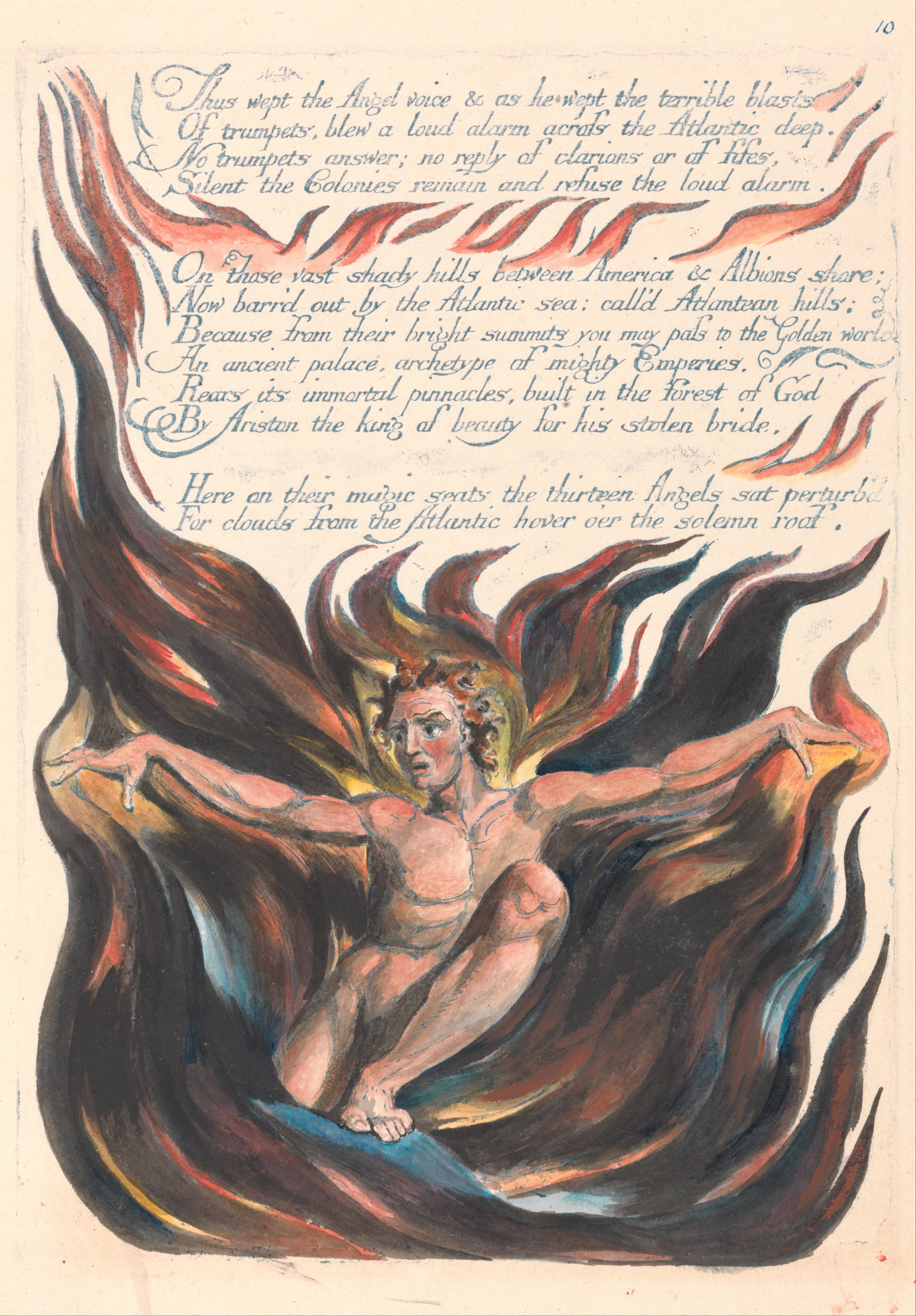Milton Plate 15 |
Iain McGilchrist is the author of the book The
Master and his Emissary. McGilchrist postulates the right
side of the brain which functions as a whole, has been preempted
by the left side of the brain which process partially, primarily
through reasoning.
McGilchrist portrays the romantic movement as
a reaction against the enlightenment or age of reason.
McGilchrist sees that left side of the brain, which processes
thought in the way that Blake's Urizen did, has come to dominate
man's psyche. Like Urizen the left side of the brain is
rational, rigid, inflexible, and locked in the continuum of space and time - the 'here and now'. Blake's Los uses the right side
of his brain by depending on imagination to see the infinite in
all things, to integrate the opposites, and to act from
inspiration.
There is No Natural Religion, (E 3) " VII The desire of Man being Infinite the possession is Infinite & himself Infinite Conclusion, If it were not for the Poetic or Prophetic character. the Philosophic & Experimental would soon be at the ratio of all things & stand still, unable to do other than repeat the same dull round over again Application. He who sees the Infinite in all things sees God. He who sees the Ratio only sees himself only. Therefore God becomes as we are, that we may be as he is" Marriage of Heaven and Hell, Plate 11, (E 38) "Isaiah answer'd. I saw no God. nor heard any, in a finite organical perception; but my senses discover'd the infinite in every thing, and as I was then perswaded. & remain confirm'd;" Milton, Plate 13, (E 108) "The Bard replied. I am Inspired! I know it is Truth! for I Sing Plate 14 [15] According to the inspiration of the Poetic Genius Who is the eternal all-protecting Divine Humanity To whom be Glory & Power & Dominion Evermore Amen" Milton, Plate 40 [46], (E 142) "There is a Negation, & there is a Contrary The Negation must be destroyd to redeem the Contraries The Negation is the Spectre; the Reasoning Power in Man This is a false Body: an Incrustation over my Immortal Spirit; a Selfhood, which must be put off & annihilated alway To cleanse the Face of my Spirit by Self-examination. Plate 41 [48] To bathe in the Waters of Life; to wash off the Not Human I come in Self-annihilation & the grandeur of Inspiration To cast off Rational Demonstration by Faith in the Saviour To cast off the rotten rags of Memory by Inspiration To cast off Bacon, Locke & Newton from Albions covering To take off his filthy garments, & clothe him with Imagination To cast aside from Poetry, all that is not Inspiration That it no longer shall dare to mock with the aspersion of Madness Cast on the Inspired,"




